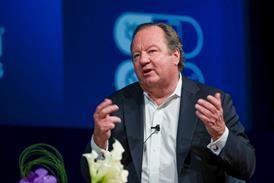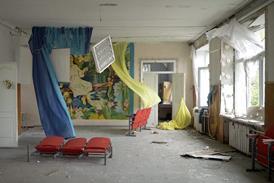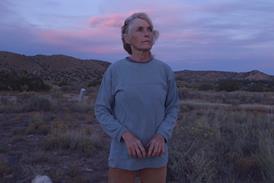The funding source’s budget is to be kept at its current level and could possibly be increased in the European Union’s budget period for 2014-2010, EU budget commissioner Janusz Lewandowski told a delegation of filmmakers in Warsaw on Friday [17].
The EU commissioner for financial programming and budget came together at the headquarters of the European Commission Delegation with the veteran Hungarian film director Istvan Szabo, president of the Federation Of European Film Directors (FERA), FERA chief executive Elisabeth O Sjaastad, Polish filmmaker Dariusz Jablonski, vp of the Polish Association Of Film Directors And Producers (FRiPP) and distributor Jakub Duszynski of Gutek Film, representing Europa Distribution.
FERA described the gathering as a “very positive hour-long meeting” and reported that Lewandowski had explained “that in these times of crisis management and austerity measures, many community programmes will face cuts, but he [Lewandowski] was happy to announce that this would not be the case.”
“The proven success of the MEDIA Programme makes it possible to not only defend its current budget level, but even find room for an increase,” the Brussels-based lobby group said.
In their conversation with Lewandowski, the delegation argued that a hike in MEDIA’s budget from the current €755m to €1.2bn over the next seven-year period would be “the still quite modest amount required to meet our most acute needs.”
“For Europe to be competitive in the global market, we need substantial transition support to make our business models fit for online distribution, which represents such great opportunities to reach new audiences,“ a FERA communique said, adding “that more development funding for directors is important to achieve future success – we currently invest only 10% of what the US spends on harnessing the best ideas.”
Sjaastad told Screen Daily that during the consultation process for a new MEDIA Programme, FERA had proposed that an extension after 2013 should include development funds for directors “along the lines oft he European Research Council’s 7th Framework Programme where researchers receive individual grants.”
FERA had proposed in its consultation submission that “If 10 directors in each of the 31 MEDIA programme countries received a grant of €30,000 for one year, 300 European directors could be given the opportunity to challenge themselves creatively and develop more innovative projects for the cost of only €9.3m” – which is less than the cost of 2 European films (with an average budget of €5m).
In addition, Jablonski suggested that greater attention should be paid to the circulation of European films and in particular films from Eastern Europe. He reiterated the proposal he had made at the MEDIA hearing in Brussels in March that the future MEDIA Programme should also be open to the Eastern Partnership countries of Ukraine, Azerbaijan, Georgia, Armenia, Moldova and Belarus.
During the discussion with the filmmakers delegation, Lewandowski said that he was convinced that the money spent on the MEDIA Programme was a “very effective use of taxpayers’ money”. Moreover, Polish press reports noted him saying that he had been provided with “excellent arguments” to continue funding MEDIA thanks to such a statistic as the one that eight out of ten Golden Palm winners in Cannes were supported by MEDIA.
“What does not work will just not be funded,” Lewandowski was quoted as saying. “The MEDIA Programme works! It is an obvious added value.”
The meeting with the delegation came less than two weeks before the European Commission intends to present the draft of its multiannual financial framework for 2014-2020 on Jun 29.
The exchange of views took place as preparations are underway for the handover of the presidency of the Council of the European Union from the current incumbent Hungary to Poland at the end of this month.
Meanwhile, Poland’s National Audiovisual Institute has announced that as part of the Polish Presidency’s six-month cultural programme, a European Culture Congress will be held in Wroclaw over four days from Sept 8-11 with 100 interdisciplinary events and projects.
The ERA New Horizons International Film Festival will organise a film programme entitled Funny Games EU on behalf of the Congress “to present the stylistic and thematic richness of European cinema, while emphasising the vitality of the Continent’s rich film tradition.” 15 European films from the last ten years will be screened, including Michael Haneke’s CodeUnknown, Francois Ozon’s Water Drops On Burning Rocks and Ivan Vyrypayev’s Kislorod.

























No comments yet